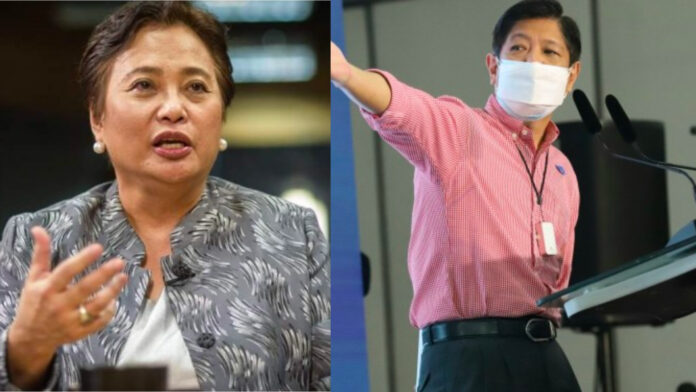Outgoing Commission on Elections (COMELEC) Commissioner Rowena Guanzon voted to grant the disqualification case filed against presidential candidate Ferdinand Marcos Jr. in her separate opinion released today, January 31, through a 24-page resolution.
“After an assiduous analysis of the arguments of the parties and the evidence of the record, I find that Respondent’s repeated and persistent non-filing of Income Tax Returns (ITR) in 1982, 1983, 1984, and 1985, which resulted in his conviction, constitutes an offense involving moral turpitude,” said Guanzon in the resolution.
Guanzon explained the importance of paying taxes, reiterating that it is the duty of Marcos to inform the Bureau of Internal Revenue (BIR) regarding how much he should pay, and that failure to file his ITR indicates an omission to evade a positive duty required by the law.
The Commissioner cited Omnibus Election Code, under Section 12, stating that any person convicted of a crime or offense involving moral turpitude is disqualified to be a candidate for any elective position. Guanzon also discussed that ‘moral turpitude’ is defined by the Supreme Court as anything that is contrary to justice, modesty, or good morals, and depicts baseness, vileness, or depravity.
Rowena Guanzon alluded to the reasons why she voted to disqualify the presidential candidate Marcos. She proved that Marcos failed to show proof that he paid to the Regional Trial Court of Quezon City his sentence and fine.
“It bears stressing that the said Land Bank of the Philippines (“LBP OR”) contained an entry showing that the collection or payment was for a lease rental. It did not bear any other indication as to the nature and purpose of the payment,” Guanzon stressed.
The outgoing Commissioner pointed out the respondent’s BIR Certification does not state what the certification and payment were for. She also included the failure of Marcos to submit any order from Branch 105 which gives more weight for her to eliminate the leading presidential candidate in the race, directing him to pay the fines and deficiency taxes as directed by the Court of Appeals.


